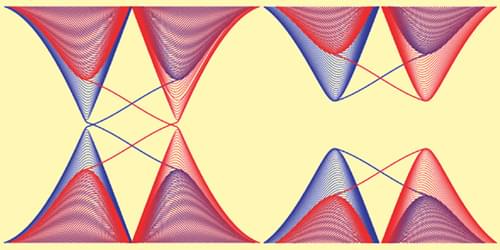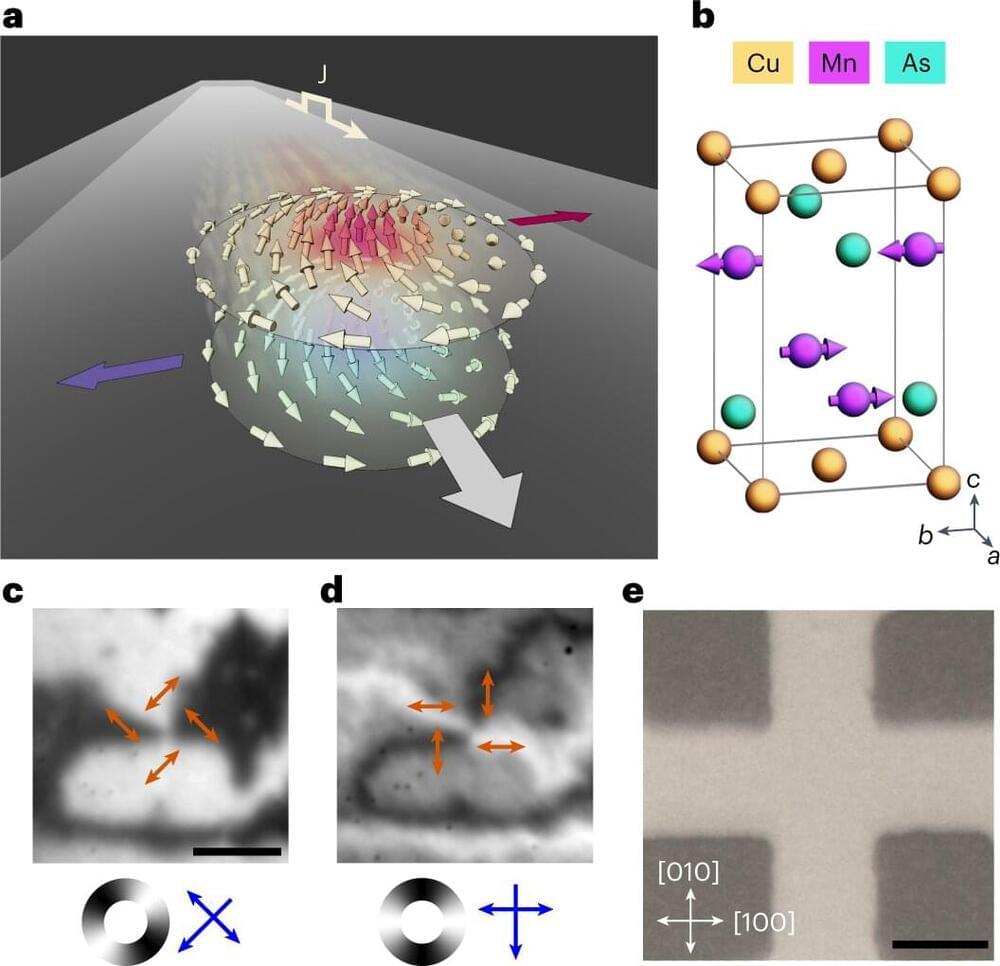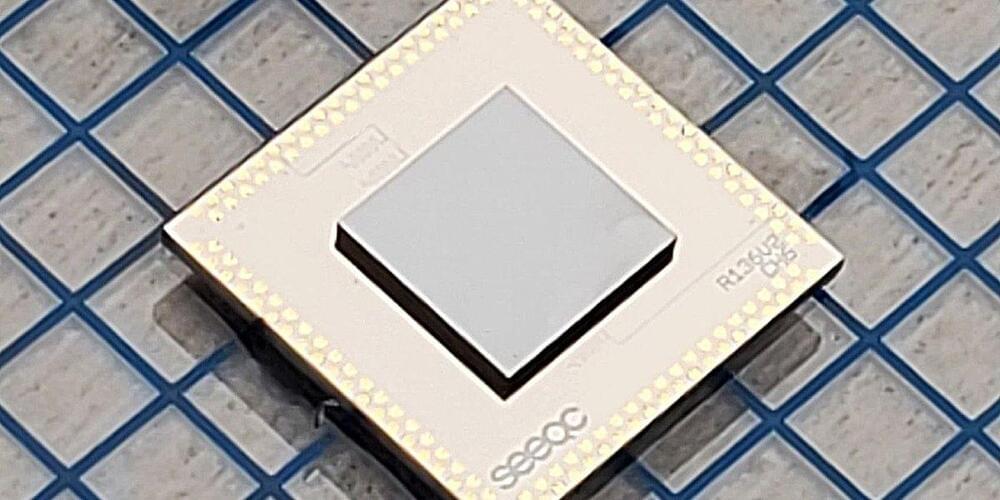
Graphene’s valence and conduction bands meet at a point, making the single-layer crystal a semimetal. Researchers have predicted that spin-orbit coupling of carbon’s outer electrons opens a narrow gap between these bands—but only for the crystal’s bulk. Along the edges, spin-dependent states bridge the band gap, allowing the resistance-free flow of electrons: a quantum spin Hall effect. The weakness of carbon’s spin-orbit coupling means that this quantum spin Hall effect is too fragile to observe, however. Now Pantelis Bampoulis of the University of Twente in the Netherlands and his collaborators have seen the quantum spin Hall effect in graphene’s germanium (Ge) analog, germanene [1]. Furthermore, they show that germanene’s structure—a honeycomb like graphene’s, but lightly buckled—allows the quantum spin Hall effect to be turned off and on using an electric field.
Bampoulis and his collaborators grew a germanene monolayer on a buffer layer of Ge atop a substrate of Ge2Pt. Using a scanning tunneling microscope, they discriminated between the edge and the bulk states of germanene and measured how current depended on voltage under an external electric field perpendicular to the layer. At low field strengths, germanene exhibited a robust quantum spin Hall effect due to germanium’s strong spin-orbit coupling. At high field strengths, the edge states no longer bridged the gap and germanene became a normal insulator. But at a critical intermediate value, germanene underwent a topological phase transition as the otherwise separated conduction and valence bands in the bulk came together and the symmetry that sustained the quantum spin Hall effect was destroyed.
The robustness of germanene’s quantum spin Hall effect and the fact that it can be turned off with an applied electric field suggest that the material could be used to make room-temperature topological field-effect transistors.

















